Soccer Sheet Names Emina Ekić USL Super League Player of the Year
The Bosnian-American midfielder led the league with 16 goal contributions, scored a brace while fasting for Ramadan, and kept Spokane Zephyr in playoff contention until the last match of the season.
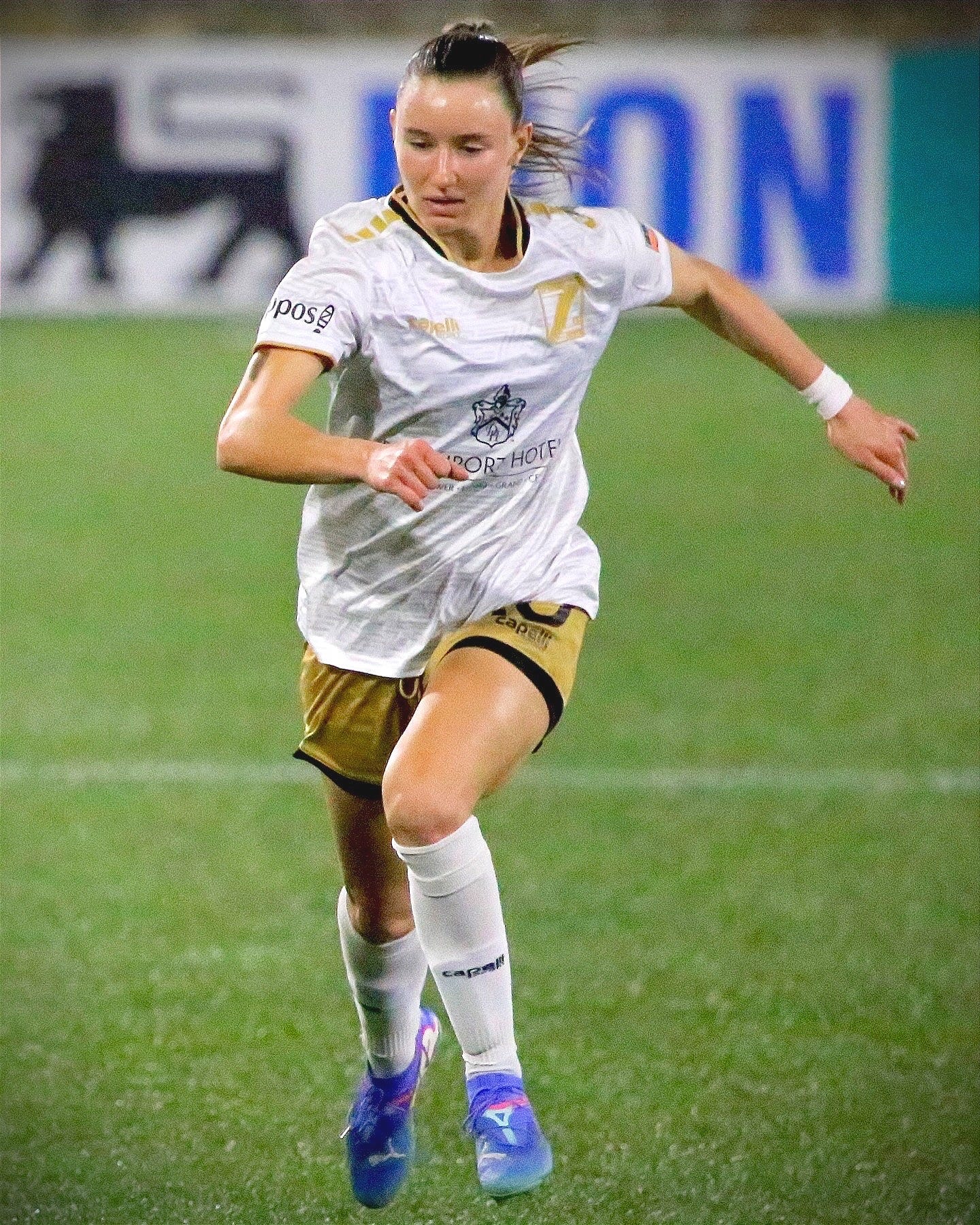
Emina Ekić truly does it all.
The 26-year-old midfielder also plays as a forward. She’s played for Racing Louisville FC — her hometown club — in the NWSL, and like many women’s players from the United States, she’s played in Australia.
At Spokane Zephyr FC, she led her team in both goals (10) and assists (6), tying Golden Boot winner Allie Thornton (Dallas Trinity FC) for the most goal contributions in the USL Super League’s inaugural season.
“I just feel like the biggest part of my game is fluidity and freedom. So I like to flow, and I like to be in different positions.
“I don't know how to toot my own horn, I don’t want to, but I just feel like I have like different things in my toolbox, and I just want the team to be successful.” - Emina Ekić
In February, she travelled to Europe to play for Bosnia and Herzegovina and in the UEFA Nations League, earning two assists against Romania and scoring a goal against Northern Ireland. Just days later, she returned to Spokane and began fasting while observing Ramadan.
The next week, she published an article about her experiences as a young Muslim soccer player in Kentucky and Queensland. Just days later, she scored a brace for Spokane while fasting, securing an important 3 points against DC United during the spring season.
After a shaky start in 2024, Spokane ended the season as one of the hottest teams in the new league. Ekić certainly had help — Spokane goalkeeper Hope Hisey had a stellar spring, and along with Ekić was named to the All-League First Team — but it’s hard to minimize the contributions of the Bosnian international.
The Zephyr’s hot streak kept the team in playoff contention, making the final match of the season against Fort Lauderdale United FC decisive. Both teams went into the match with the same number of points; Spokane needed a win to advance, while Fort Lauderdale only needed a draw.
Sadly for Spokane, the match ended in a 1-1 draw. They would barely miss the playoffs, though the Zephyr ended the season with the same number of points and a superior goal differential to Fort Lauderdale.
“Looking back over the course of the whole year, I mean, I think [there’s] a lot to be proud of,” Ekić told Yara Al Bayyari and Sam Spencer of Soccer Sheet in an exclusive interview last week. “We've had a lot of growth on and off the field; individually, personally, [and] club-wide. So I just think [this season] was a little stepping stone leading into the second year, and I'm excited about it.”
In our conversation with Ekić, many of the same qualities that make her a great player were on display: humility, unselfishness, gratitude, and the desire to be a difference-maker. We have no doubt she will continue to be a player to watch in the Super League’s second season, and for that — and many more reasons — Emina Ekić is our first-ever pick for Soccer Sheet’s USL Super League Player of the Year.
You can read our interview with Ekić below.
Emina Ekić: The Soccer Sheet Interview
Editor’s Note: This interview has been slightly edited for brevity and clarity.
Sam Spencer, Soccer Sheet: Emina, thank you so much for talking with us today. You just had your last match of the season. How do you feel, looking back on your first USL Super League season?
Emina Ekić: Thank you for having me. I would say that this weekend was disappointing because we worked really hard in the spring to put ourselves in a position to be in playoffs. But looking back over the course of the whole year, I mean, I think [there’s] a lot to be proud of. We've had a lot of growth on and off the field; individually, personally, [and] club-wide. So I just think [this season] was a little stepping stone leading into the second year, and I'm excited about it.
SS: So what were the highlights of the year for you?
EE: I would say the first game was really cool, having the fan base in Spokane just really show out for us. Probably a lot of good memories in the spring, scoring my first goal [in the] first game for the club. That was amazing.
And then I think I would say my free kick against DC Power FC at home, because I feel like that really changed the pace and the energy shifted for us, going in the spring where we had that mentality where we were like, we're going in this to win or try to win every single game.
[Editor’s Note: the free kick goal not only completed Ekić’s Ramadan brace, but also was a go-ahead goal in stoppage time for Spokane in their March 15 win over DC Power]
SS: So a big storyline for the second half of the season was that Spokane Zephyr sort of came out of nowhere and really made that playoff push. What do you think changed, or how do you think the team came to get together to make that happen?
EE: Yeah, I mean, I think that's exactly what happened. In the locker room behind closed doors, the team really came together, and we knew we could accomplish more. We can do better than we performed in the fall. I think everyone had a not only a much higher standard for themselves individually, but also for us as a whole.
So it was a lot of just like getting on the same page, having each other's backs, and understanding the game plan; and that's really what it came down to. We worked really hard for one another, and we all believed in the same thing.
SS: You've you've had a pretty amazing journey: grew up in Louisville, drafted fifth by Racing Louisville FC, played in the NWSL. So how did you make your way to the Super League via Australia?
EE: Well, I had someone from [Spokane] reach out. In Australia, I really loved it [and] enjoyed my time there. I loved Melbourne City, [they’re a] great club, but it was just difficult for me to be that far from home for that long.
So I was exploring my options back in the U.S. when I was home for a break, and Spokane kind of just fell in my lap.
SS: Did you get to go to the Australian Open, or do anything cool when you were in Queensland?
EE: I did actually go to the Australian Open! That was a cool experience. I watched the Serbian tennis player, Novak Djokovic, play. It was a cool experience.
SS: One of the things that I've heard in a lot of my conversations is how important the Super League has has been to have the extra slots for women to come back and play in the U.S. Is that something that you've seen in your career?
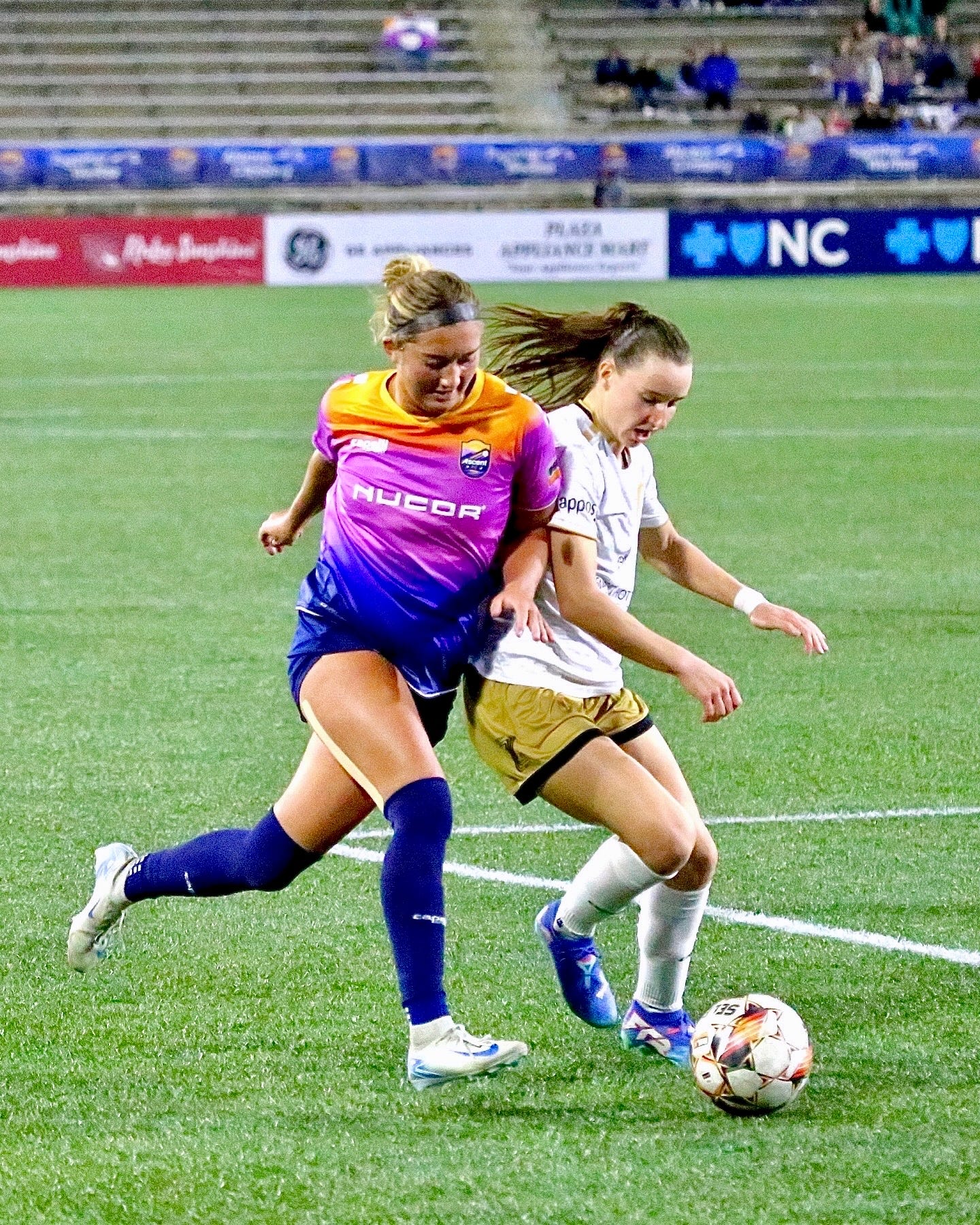
EE: Yeah, for sure, I feel like the U.S. is very competitive, and it has limited spots. I think it's a superpower for women's soccer. So a lot of the girls that aren't playing in the NWSL have to go overseas where they have a first league, a second league, a third league, [and] so many opportunities for women to play soccer.
So I think adding another league to the U.S. and keeping talent in the U.S. is a great opportunity.
SS: What what was it like going through the entire American track from High School, to NCAA Division I, to NWSL and finally the Super League? Was that always your plan, or did you have something else in mind when you started playing soccer?
EE: I feel like ever since I was little, I’ve kind of known that I wanted to play professionally, [so] it was [about] focusing on what was ahead of me. So, you know, having a great club season, making my high school team, and so on.
Then once I was in high school, the main focus really was college and playing in college, and from then on, once I got to college, I was like, “I want to play in the pros. I want to do well here.”
I feel like I've just always loved it throughout my whole life journey.
SS: You've written about the experience of fasting during Ramadan, including while in Australia, but I wanted to know what that was like, and how much support you got from your teams.
EE: I grew up participating in Ramadan. But the club was amazing. They obviously reached out to me, had conversations about it with me. Even when it's not Ramadan, on a day-to-day basis, I have special meals, so say we get breakfast, and I have a meal with my name on it because it's the one with turkey bacon, because we don't eat pork. So they've been very accommodating to me in every way, shape, or form.
SS: Women's soccer, especially in the U.S., has been known for for inclusion, so I would hope that it’s been a positive experience every year you've fasted.
EE: It has. From being here [in Spokane] to Melbourne City, I feel like people always ask me about it, like they want to learn more, but they always try to accommodate me and what I need, and reach out first and tell me to reach back out if I need anything changed. So yeah, it's actually been very inviting. And it's been really easy.
SS: So one of the really interesting things about your game is that you are one of the few players this year that had a shot at both the Golden Boot and and the Golden Playmaker awards. How are you able to have such a versatile game, where you're in position to score, while at the same time being unselfish and creating so many opportunities for your teammates?
EE: I don't know. That's a great question.
I just feel like the biggest part of my game is fluidity and freedom. So I like to flow, and I like to be in different positions.
I don't know how to toot my own horn, I don’t want to, but I just feel like I have like different things in my toolbox, and I just want the team to be successful. So it’s not about only me scoring. I like to assist and pass the ball. And I have that vision for the game, because I feel like I grew up watching it for so long, and obviously learning from my dad and my family has only helped my soccer IQ. And just being coached by some great coaches in my career.
But also, I've always loved to dribble, and I love to be on the ball. And I feel like that's when I'm at my best.
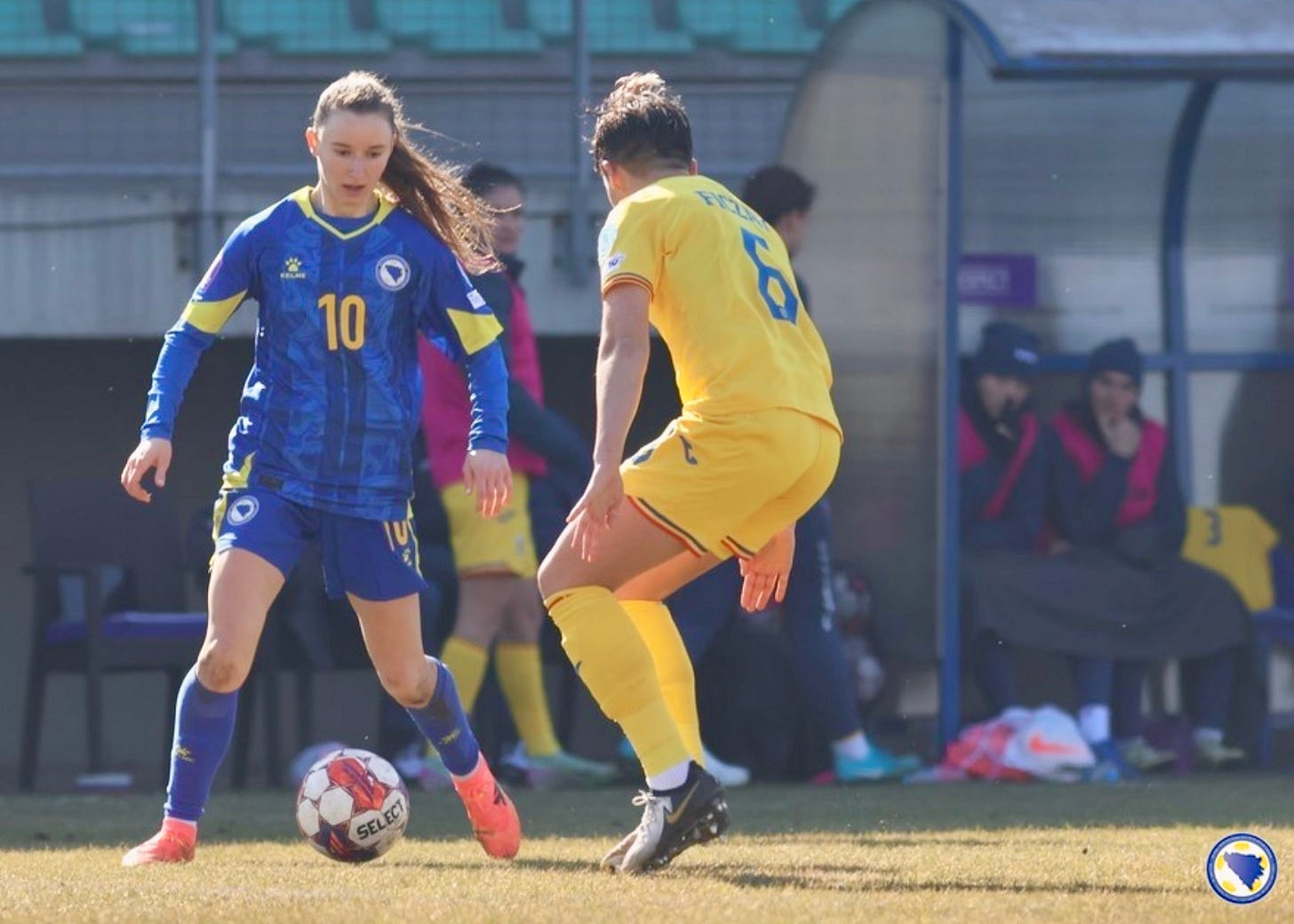
SS: You've gotten caps for Bosnia and Herzegovina in UEFA Nations League. What has your international experience been like?
EE: It’s been great. I think I am about two years in playing for Bosnia.
It's been a great experience. I've always wanted to play international soccer. I think that's a dream come true for pretty much anyone that plays professionally; But it took some adjusting at the beginning.
They were always super friendly and welcoming, but it is a big lifestyle change and change of scenery, obviously, going from the U.S. to Bosnia, and while I do speak the language fluently, you know, I'm not in that environment constantly. So when I first showed up to camp, I felt like my brain was so tired because I'm just not used to being switched on to Bosnian at all times.
But it's just a different sense of pride you feel when you play for your country, and the togetherness of everyone, and it's really cool because my parents fly out and watch. My grandparents live there. So they come to a lot of games, and I kind of feel like I live a double life, or I've kind of connected this other half of my life to the rest of my life, and it's a really neat experience, and I'm really grateful for it.
SS: What has that been like with your parents? You know, being first generation, being born right after a lot of the conflict in Eastern Europe?
What was the story that that brought your parents to Louisville?
EE: So initially, they left Bosnia due to war, and they grew up. I think they spent their high school years in Germany, learned German, and once the war settled and everything, and it was time for them to go back, they didn't want to because there was not much to go back to. They wanted a better life for themselves, and I'm sure, for the future and their family.
I don't really know how it works from there, but they kind of just got placed in Louisville, Kentucky. They didn't really get to pick, and we've been here ever since. This is where my brother and I were born and raised, and that's kind of it.
Some family followed, so a lot of my mom's side is in Louisville, and then a lot of my dad's side actually ended up in Melbourne, Australia. So it was cool getting to meet a lot of them for the first time in person when I was there playing for Melbourne City. So that's just kind of how it happened.
And then I still have a lot of family that have stayed in those countries in Europe, some that have gone back to Bosnia, so I kind of have a little bit of family everywhere.
SS: That's awesome.
In terms of Spokane, how much has Zephyr and the [USL League One] Velocity meant to the community?
And what have you gotten back?
EE: I mean, I feel like we have gotten so much back, just like the support of this place. Even after we obviously did not have a great fall, I feel like everyone still believed in us. They came to the games.
We didn't feel that pressure. We felt bad as a team, because we like wanted to do well for the coaches and the owners and the fans, and things just weren't going our way at the time. But that support was something that I've never felt before from a city and a fan base.
What was the other part of your question?
SS: Just the reverse. What has the team meant to the city?
EE: We get out a lot and do a lot of volunteering. I think our goal was that each individual does ten volunteering [shifts] a year. And I'm assuming that goes for the men's team as well. So everyone has gotten out at least ten times in the community and tried to help and give back in any way they can. So I feel like the community and the team are quite connected.
SS: Was there any adjustment for you moving to a smaller market like Spokane in the Pacific Northwest? Obviously, when you were playing for Racing, you get to go to Portland and you get to go to Seattle, but those are really different cities than than Eastern Washington.
EE: Yeah, I think so. I feel like I've lived most of my life on the East Coast, traveling for short periods of time. It's cool to see places, but you're not really living there. So it's a different experience.
I think it's a different vibe out here. It's peaceful, it's relaxing. I love the nature. The nature is very different from what we have back home, but it does kind of remind me of Louisville, because Louisville is not the biggest city, so in that sense, it wasn't a shock to me.
I think I kind of like things that are a little bit on the smaller side.
SS: Looking looking back on this year. You told us about the biggest moments for you. What were the most challenging moments?
EE: Great question.
Obviously, the fall as a whole was difficult, but I feel like a couple times in the spring this year. Both the losses to Carolina, because we knew coming back into the spring that we couldn't drop points, and we had to win. We we could tie only a handful of times, and losing wasn't an option.
We won a game or two, and I think we lost to Carolina at home, and the locker room was kind of like, “not again!” in a sense that we have to be more consistent. We can't just like shut off or, like, “win a game, lose a game, win a game, lose a game.” There's just not not enough time for that, really. So that's when we locked in.
And I want to say, when we lost to Carolina the second time, because we stuck to that, and we were consistent, and we were doing well, but it was just not our best game and the end of a really long trip. We felt on top because we have been winning, and we were on a roll, and things were fine and dandy. And then obviously, the second loss to Carolina got our spirits a little bit down.
But we recouped and we got back together, and then we're just like, “we just have to keep going.”
SS: What are you looking forward to in the in the second season?
EE: I feel like it's not just like our club, but league wide, you know. There's growing pains the first year. You're trying to get things down. And [fix] simple things like flights and housing.
I just think as a whole, Spokane included, for the second year we already have one foot in the door, so we know what to expect.
Even with like the winter here. You expect that it's gonna be bad, and it's gonna snow. And some days in the early spring, we couldn't be outside, and I'm sure there'll be plans in place, either to travel or to be in an indoor facility. But just little things like that, like logistics.
Really, it's like we're going into sophomore year. So I think we all just know what to expect.
Yara Al Bayyari, Soccer Sheet: Hi! It's so nice to meet you. I loved reading your article about playing during Ramadan this year.
EE: Hi, thank you so much.
YAB: In American soccer, we don't see a lot of Muslim representation, especially for women. What would you tell your younger self. And what would you tell the little girls that look up to you as a player?
EE: I feel like I would just say to like, be yourself and be unapologetically yourself. I just feel like when people ask me this question, it's never come across my mind, to voice that I'm Muslim, and I've had so many people come up to me. Because to me, it's whatI practice at home and with my family.
But it's just amazing how everyone wants to learn more. And everyone wants to help, like multiple clubs within Spokane and the USL. And I just think, just like, be yourself.
YAB: I love that. Do you have any special traditions or experiences that you look forward to doing with your family during Ramadan?
EE: Yeah, I mean, I just look forward to having meals and dinner together. Iftars together, and just being able to be at home, which was nice. So being away from home during Ramadan, and obviously the celebrations after Ramadan, is hard. But I'd say that's my favorite part — just being together.
YAB: Are you doing anything fun for Eid al-Adha on Friday and Saturday?
EE: Yeah. That's why I'm flying home tomorrow. Actually, the 6th is my birthday.
YAB: Oh, wow! Happy birthday, happy Eid!
EE: Thank you as well. So it's a two-in-one. We're gonna have a little family get together at my house. We're gonna have a lamb roast and a bunch of gifts and food, so it'll be a good time.
YAB: That sounds amazing.
My last question is, you mentioned playing in Bosnia and getting to have your grandparents come out? What would you say was your most memorable moment playing over there and just being able to experience your culture in Bosnia.
EE: Of course.
I would say my first camp. We actually had a big family trip, so my family from Australia met us there, and obviously we flew over. So everyone was there, and everyone actually got to see me play for Bosnia for the first time. So we played at home, and then everyone drove to Budapest in Hungary to watch me play the second game, and it was really cool, like lots of travel, lots of food, and everyone got to be together, which doesn't happen often, because Australia is so far away. So it was a cool experience that everyone got to witness and be there.
YAB: That sounds awesome. I love when I get to visit my family, too. It's just an amazing opportunity to see everyone there, and. the energy must have felt unmatched. Having them all cheer for you in the stands together.
EE: Yeah, it was amazing. It was a really good time.
YAB: Sam, do you have any other questions? I'm gonna toss it back to you.
SS: This year we had the Super League debut, and we've got Club World Cup. Next year the Men's World Cup comes to the U.S. How do you feel about the state of soccer right now?
EE: It's awesome. I think it's popping off, and I'm excited to be able to watch all these things from the U.S. But it's like crazy to hear my parents talk about it, because when they first showed up here, soccer really wasn't a thing.
No one was playing it like it just didn't exist. And just like seeing from their point of views how much it's grown and like in the last couple of years, how much the women's game has specifically grown is just amazing. Like, I'm really like, lucky and blessed to be here like when it's happening at this time.
SS: Well, Emina, thank you so much for your time today. Best of luck in the off season, and look forward to seeing you the next time you're down here in Charlotte.
EE: No, of course. Thank you so much for having me.
YAB: Thank you so much for talking with us.
EE: Of course. Thank you, I really enjoyed this.
SS: Take care and hope to see you soon.
EE: Thank you.



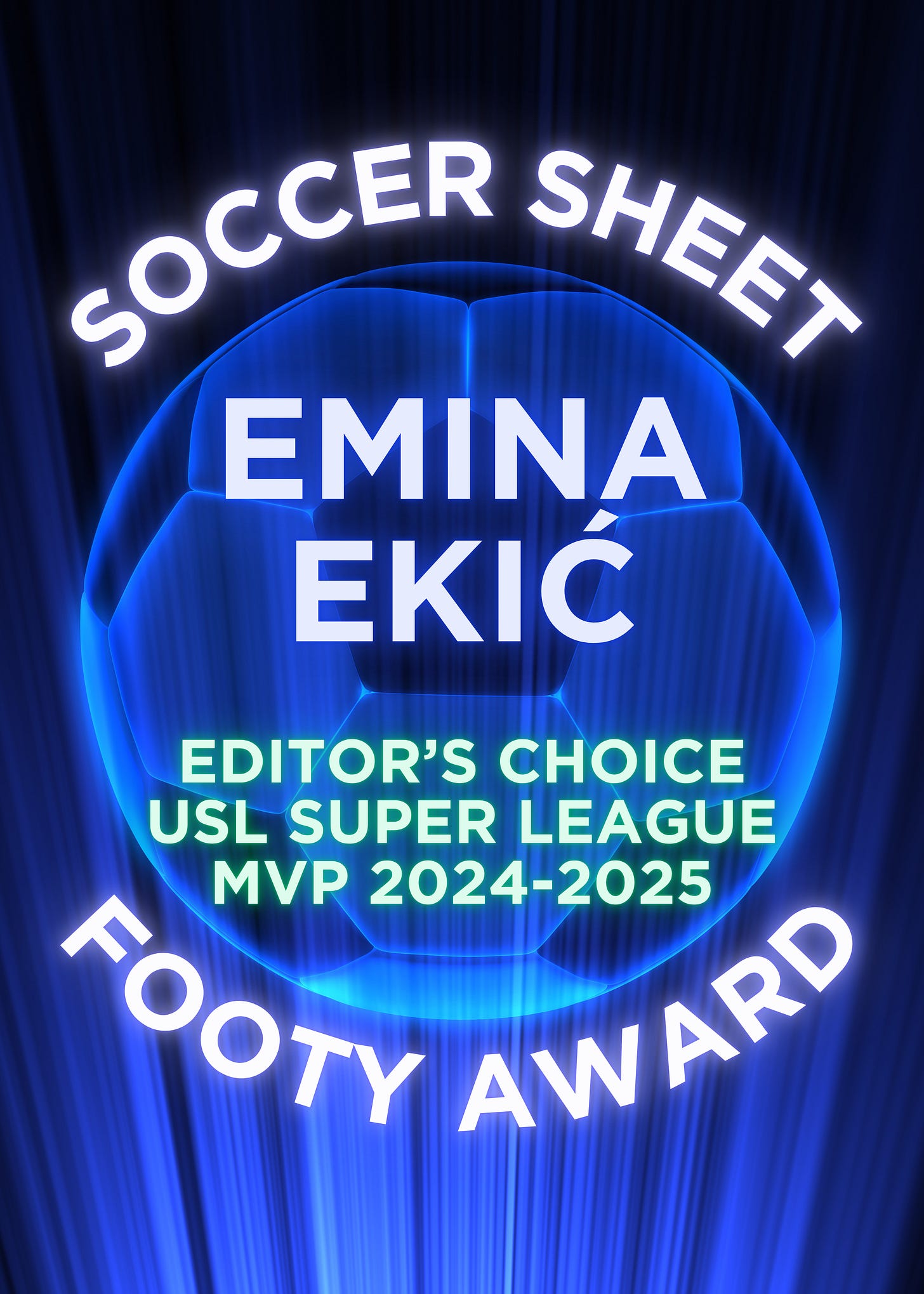
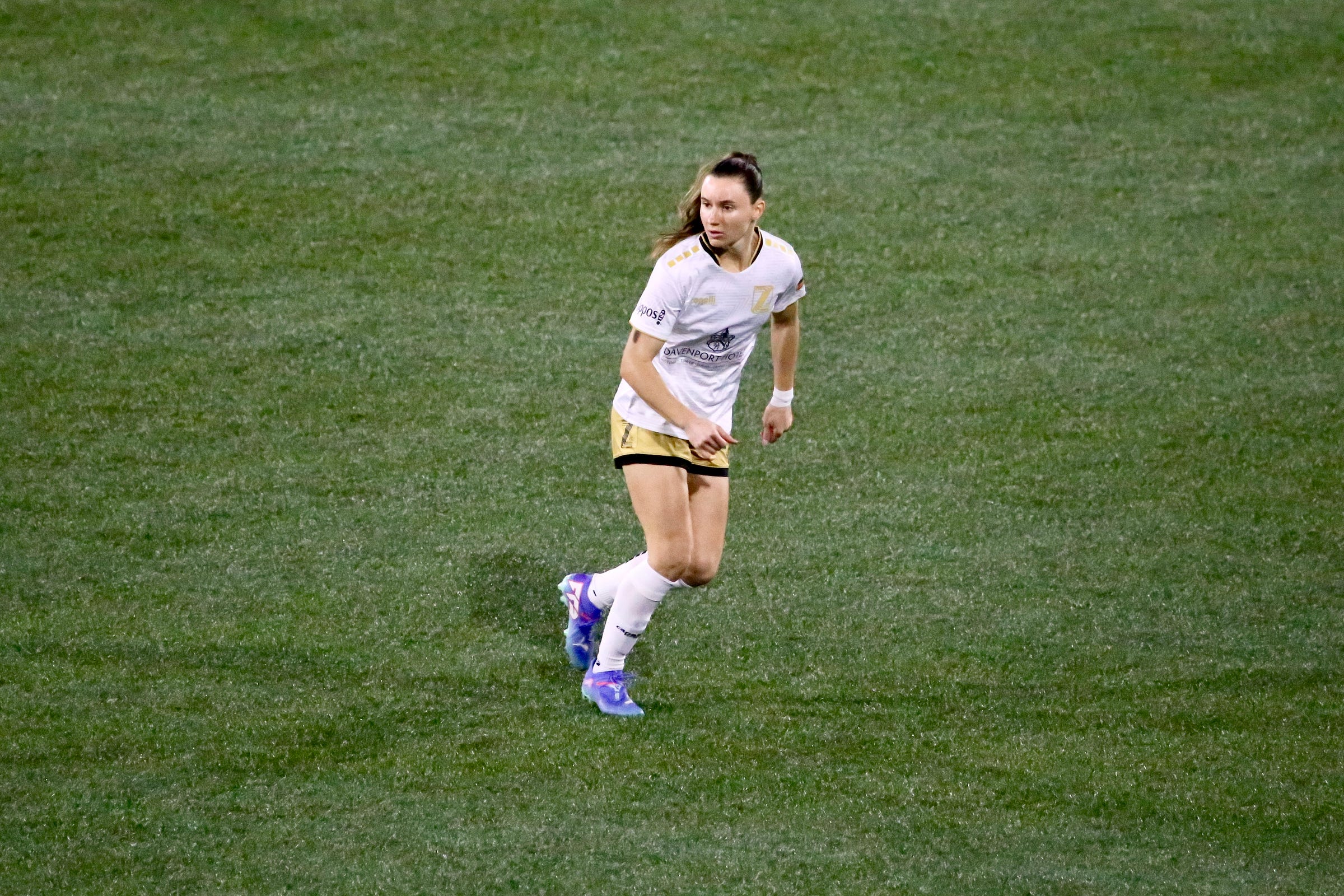

Emina is a beautiful person and a superb soccer player. She knows how to lead a team and bring them to the finals. Spokane LOVES her!!!